Site Search
- resource provided by the Forum Network Knowledgebase.
Search Tip: Search with " " to find exact matches.
A CNJG member received an application from a school district, and wanted to know if others granted funds to a school district, and what other funders learned from granting to a district.
A CNJG member queried our listserves with the question "How does your organization handle rapid response grants during a disaster or crisis in an equitable way to assure fairness in selecting grantees?" CNJG compiled the answers from responding members.
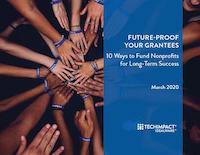
Wouldn’t it be nice if you could fund a single project that would have a positive impact throughout all of your grantees’ programs and services? There is: technology capacity building. Properly supported, the right technologies can build your grantees’ effectiveness and efficiency and multiply the impact of your other grants and programs. Many foundations are reluctant to support technology projects. As a result, many nonprofits are reluctant to directly ask for that support.
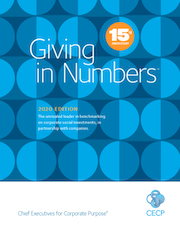
CECP’s Giving in Numbers™is the unrivaled leader in benchmarking on corporate social investments, in partnership with companies. It is the premier industry survey and research, providing standard-setting criteria in a go-to guide that has defined the field and advanced the movement.
CNJG member Novartis, benchmarked Employee Crisis Programs, and asked fellow corporate funders via the corporate funders listserve to answer the questions below.
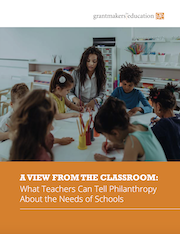
What can over a million teachers tell us about the needs of schools? This report digs into the data from 1.8 million teacher requests on the crowdfunding site DonorsChoose to tell the story from inside today's classrooms. We feel this data provides a roadmap for funders seeking to support students directly, but also for funders seeking broader reform of U.S. education policy and systems.
A CNJG member queried our listserves on policies regarding: 1) number of vacation days for new full-time employees; 2) paid time off (PTO); and 3) working remotely. CNJG compiled the answers from responding members.
A CNJG member queried our listserves for sample questions (not included in the grant application) you might ask grantees or potential grantees during site visits. CNJG compiled these responses, and other documents members use.
The benefits of sabbaticals for nonprofit leadership have been well documented. A study of five sabbatical programs over five years shows that sabbaticals not only provide needed respite to nonprofit leaders, they increase organizational capacity, aid succession planning, and strengthen governance.
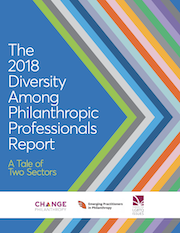
This report lays out the results of the inaugural Diversity Among Philanthropic Professionals Survey, where participants were asked to identify their role within their foundation, their age, gender identity, sexual orientation, race and ethnicity, and disability status.
BD contacted the Corporate listserve to ask questions to benchmark Community Service/Volunteer Paid Time Off Policy & Internal Company Guidelines for Volunteer Councils. They are formalizing some of their programs and wanted to see what other companies are doing.
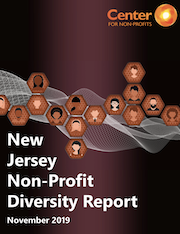
This study underscores the enormous challenges facing the non-profit community to overcome deep- seated inequities in leadership, recruitment and retention.
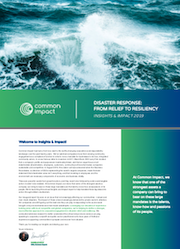
There is a stronger, more strategic role that companies can play by leveraging skills-based volunteering to invest in a community’s resilience.
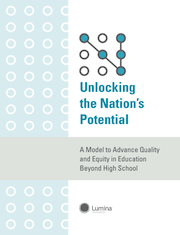
A report from Lumina Foundation and its Quality Credentials Task Force calls for a coordinated national effort to ensure equitable access to quality postsecondary education in the United States.
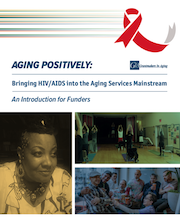
This report will raise the voices and examine the needs of older people living with HIV, while exploring opportunities for philanthropies to create meaningful impact in public and personal health and wellbeing.
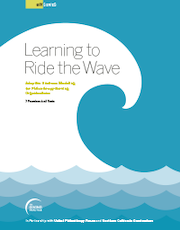
Developed in partnership with United Philanthropy Forum and Northern California Grantmakers, this guide shares seven practices and 12 tools for Philanthropy-Serving Organizations who seek effective ways to mobilize resources to sustain their organization’s work.
This brief considers the implications of the 'public charge' rule and how philanthropy can mount an effective immediate and long-term response.
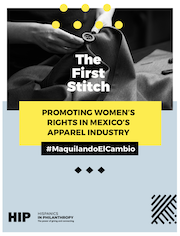
This report highlights both the circumstances that women face in the apparel industry and the broader economic environment in which apparel companies operate, which significantly affects how these companies treat their employees.

Technology Affinity Group has released two new resources as a part of its Cybersecurity Essentials for Philanthropy series. These publications offer best practices and suggestions based on the collective on-the-ground knowledge and experience of philanthropic organizations across North America.
 Racial Equity Tools is designed to support individuals and groups working to achieve racial equity. This site offers tools, research, tips, curricula and ideas for people who want to increase their own understanding and to help those working toward justice at every level.
Racial Equity Tools is designed to support individuals and groups working to achieve racial equity. This site offers tools, research, tips, curricula and ideas for people who want to increase their own understanding and to help those working toward justice at every level.
